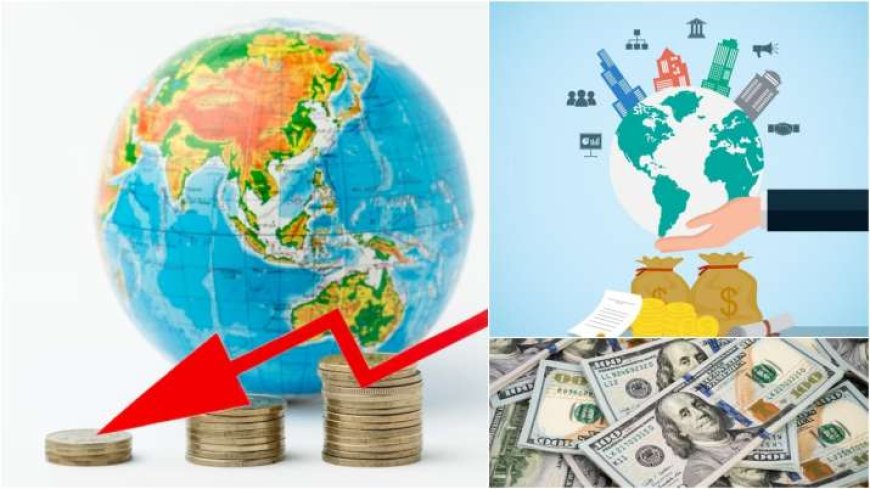Global Economy to Experience Soft Landing After Tough Phase, What It Means and the Risks Involved? PWCNews
दुनिया की टॉप इकोनॉमीज की बात करें, तो पहला स्थान अमेरिका का है। अमेरिका की जीडीपी 28.78 ट्रिलियन डॉलर की है। दूसरा स्थान चीन का है, जिसकी जीडीपी 18.53 ट्रिलियन डॉलर की है। जर्मनी 4.59 ट्रिलियन डॉलर की जीडीपी के साथ तीसरे स्थान पर है।

Global Economy to Experience Soft Landing After Tough Phase
In recent times, the global economy has faced significant challenges, prompting discussion around the concept of a "soft landing." This term refers to a scenario where an economy transitions from a period of robust growth to a slower, more sustainable pace without falling into a recession. The implications of such a shift are vast, impacting businesses, consumers, and financial markets alike.
What a Soft Landing Means for the Global Economy
A soft landing suggests that the economy is adjusting to recent changes such as inflation rates, supply chain disruptions, and shifts in consumer behavior. This adjustment phase allows for a stabilization of economic growth, which while slower, is often seen as healthier for long-term sustainability. Policymakers, economists, and businesses are closely monitoring indicators such as unemployment rates, consumer spending, and international trade to gauge whether this soft landing is indeed occurring.
Potential Risks Involved
Despite the optimistic outlook, there are inherent risks that accompany this transition. One of the primary concerns is rising inflation, which could prompt central banks to increase interest rates. Such actions could inadvertently stifle economic momentum, leading to potential downturns. Additionally, geopolitical tensions and global market fluctuations continue to pose threats that can derail the soft landing narrative. Analysts indicate that while a soft landing is preferable to a recession, careful monitoring and proactive measures are essential.
The Importance of Adaptive Strategies
Businesses and policymakers must remain agile, prepared for rapid changes in the economy. It’s crucial to adopt adaptive strategies that can mitigate risks associated with a soft landing. This includes optimizing supply chains, engaging in financial hedging, and staying informed on global economic trends. Communication among stakeholders can also foster a better understanding of emerging challenges, aiding in collaborative risk management.
In conclusion, the global economy might be on the verge of a soft landing after experiencing a tumultuous phase. While this shift offers a more stable growth outlook, the associated risks require due diligence and proactive management. Understanding what a soft landing means and preparing for the uncertainties is critical for all economic participants.
For more insights and updates on this topic, visit News by PWCNews.com.
Keywords
global economy, soft landing, recession avoidance, economic growth sustainability, inflation and interest rates, business strategies, economic monitoring, risks of soft landing, geopolitical tensions, financial market fluctuations, consumer behavior shifts, supply chain optimization.What's Your Reaction?



















































